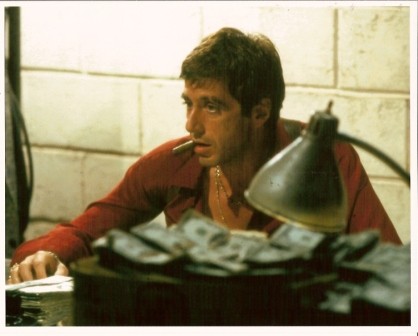Sunday, October 14, 2018
Liverpool, England – On the way from the Hotel de Rome to the Berlin Airport, the driver, Franz, asked me about the hurricanes in Florida. He wanted to move there, he said, but his girlfriend was scared.
“On the news,” he said, “They make it look like every six months all the houses in Florida get knocked down.”
I told him that his girlfriend shouldn’t worry about hurricanes. That although the worst of them could be devastating, the danger is routinely exaggerated. I said that I lived on the beach, had done so for 20 years, and we’d had damage to our house only once and it was mild.
“Fake news,” he said. I agreed.
That neologism – fake news – it irks me. Donald Trump has put it securely into not just Merriam-Webster but probably every dictionary in the world. That’s something I always wanted to do!
On the plane to London, I had time to look over the notes I’d taken during the meetings last week in Berlin.
Billion-Dollar Copy Genius Mike Palmer gave several excellent talks, including one about the five stages of learning for a copywriter: uninformed optimism, informed pessimism, a crisis of meaning, a crash-and burn-moment, and finally a mature period of informed optimism.
I talked with Mike about this after his presentation. We agreed that it is true not only of a copywriter’s career but also of the experience of writing a promotion.
Then one of Mike’s protégés, 100-Million-Dollar Copy Chief Patrick Bove gave an inspiring talk about tricks and transparency in advertising. He began by suggesting that there are two ways to write a successful ad: You can use manipulation or you can use persuasion.
Manipulation is about trickery, he said. It’s about bait-and-switch. Suggesting to the prospect that you will be talking about one thing and then talking about something else. Making irresistible promises you can’t keep. Twisting data to support false statements. Creating artificial urgencies, etc.
Persuasion is about understanding the core desires of the prospect and then showing how the product or service you are selling will fulfill them. Persuasive writing is much more difficult than manipulative writing because it requires a great deal more research and a much better understanding of the prospect’s feelings, beliefs, and wants.
Manipulation can work very well in the short term. But it fails in the long run because you can only fool a prospect once or twice. If you want to develop a long-term, mutually beneficial relationship (which is what business should be about), you can’t manipulate. This is especially true in the digital age where everything is transparent. Fakers are quickly found out. So…
Don’t make the promise. Present the facts. Let the reader make the promise.
Don’t cherry-pick. Present all the facts.
Stop making over-the-top promises.
Remember that having a guarantee doesn’t absolve you of writing manipulative copy.
Focus on the long-term, Patrick said. “Provide real value. Care more about the quality of the relationships than short-term sales and you and your client and the customer will all be happier and wealthier in the end.”
 MarkFord
MarkFord


